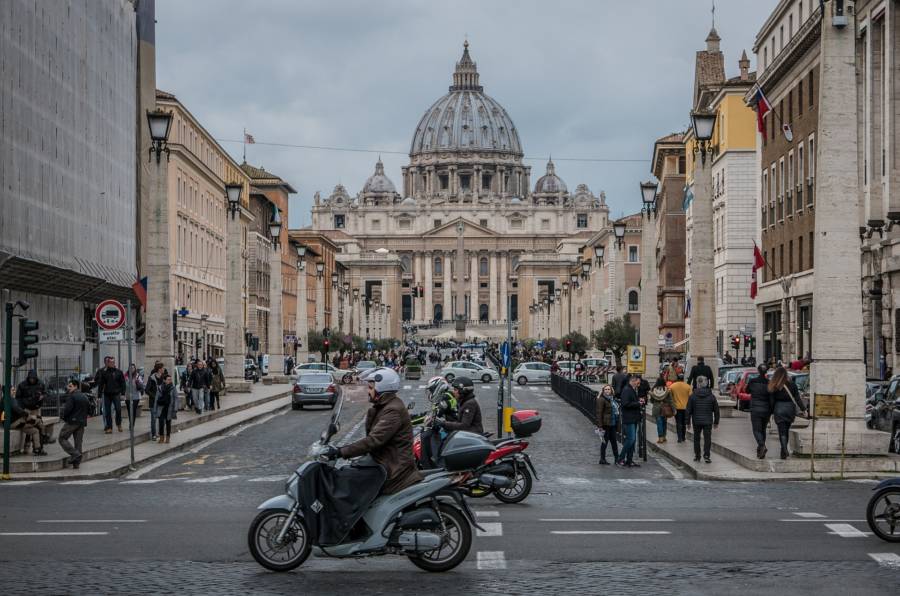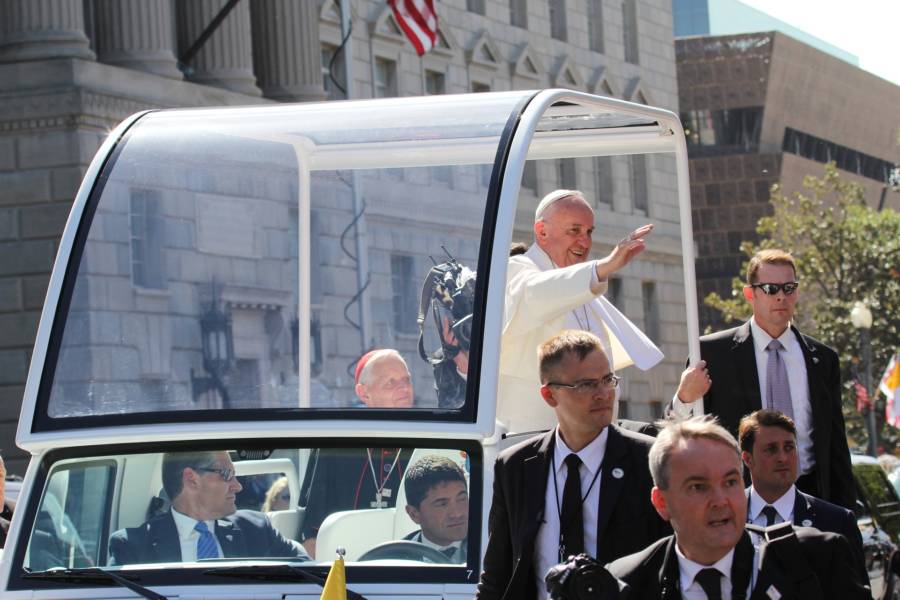Pope Francis' statements come after a report was released last week by a Vatican women's magazine which detailed nuns forced to abort priests' children.

PixabayPope Francis in Rome, 2015.
In a historical first, the Roman Catholic Church has not only acknowledged the sexual abuse of nuns on behalf of its own clergy, but detailed how nuns were used as sex slaves by priests and bishops alike.
Pope Francis said on Tuesday that he was devoted to ending the rampant issue: “We have been working on this for a long time. We have suspended some priests because of this.”
The unusual transparency came in response to a reporter’s questions about an article published by Women’s Church World, the Vatican’s women’s magazine, which exposed this sexual abuse by clerics — and described the abortions these nuns would have to undergo, or the difficulties of giving birth to children fathered by priests.
“It is true … there have been priests and even bishops who have done this. I think it is still going on because something does not stop just because you have become aware of it,” Pope Francis conceded.

PixabaySt. Peter’s Basilica, Vatican City, 2017.
Last week’s Vatican magazine article claimed priests operating in Africa specifically used nuns for sex because they were deemed physiologically safe in the face of the continent’s AIDS crisis. The article also gave nuns in India and Chile a chance to detail their experiences with clerical sexual abuse.
The growing spotlight on the church is twofold: the willingness to speak up in the era of the #MeToo movement, and subsequently, the extensive investigations into the church’s sex crimes.
The Associated Press published its thoroughly researched findings into these allegations last year and found that the sexual abuse of nuns by clergy was “global and pervasive.”
The BBC reported that one bishop in India, for instance, was arrested last year over allegations that he had raped a nun 13 times between 2014 and 2016. A Vatican investigation into similar reports from Chile resulted in the women removed from the order.
This global system of abuse has reportedly become so insidious that church leaders either allow it to continue in the face of complicity or exasperation or dissolve entire congregations irrevocably affected by it. Pope Francis himself mentioned his predecessor, Benedict XVI, as a prime example of the latter.
Benedict XVI reportedly dissolved an entire religious order of nuns in 2005 “because a certain slavery of woman had crept in, slavery to the point of sexual slavery on the part of the clergy or the founder.” A Vatican spokesperson later reported that this instance referred to the Contemplative Sisters of Saint-Jean, a small group in France.

PixabayPope Francis in Washington D.C., 2015.
Just last year, the French publication Le Parisien reported on a former nun who experienced sexual abuse on behalf of a priest. Known only as “Christelle,” the woman was part of a congregation in France between 2010 and 2011 when her priest’s “Gestures became more and more inappropriate.”
“But he kept going…until the day he raped me,” Christelle recalled. “He was unable to control himself…he had a split personality.”
“If the church continues to close its eyes to the scandal — made even worse by the fact that abuse of women brings about procreation and is therefore at the origin of forced abortions and children who aren’t recognized by priests — the condition of oppression of women in the church will never change,” wrote Lucetta Scaraffia, editor of Women Church World.
The statements made by Pope Francis on Tuesday do indeed indicate a willingness to end this systemic network of abuse. The awareness of, and active choice to be transparent on these issues, has brought renewed attention to the matter.
“I can’t say ‘this does not happen in my house.’ It is true. Do we have to do more? Yes. Are we willing? Yes,” the Pope reported to Reuters.
How effective and permanent any potential changes will be, however, has yet to be seen.
After reading about the Catholic Church’s acknowledgment of sexual abuse of nuns by clergy, read about Pope Francis giving priests surprising new powers when it comes to abortions. Then, learn about his stance on women in the priesthood.





